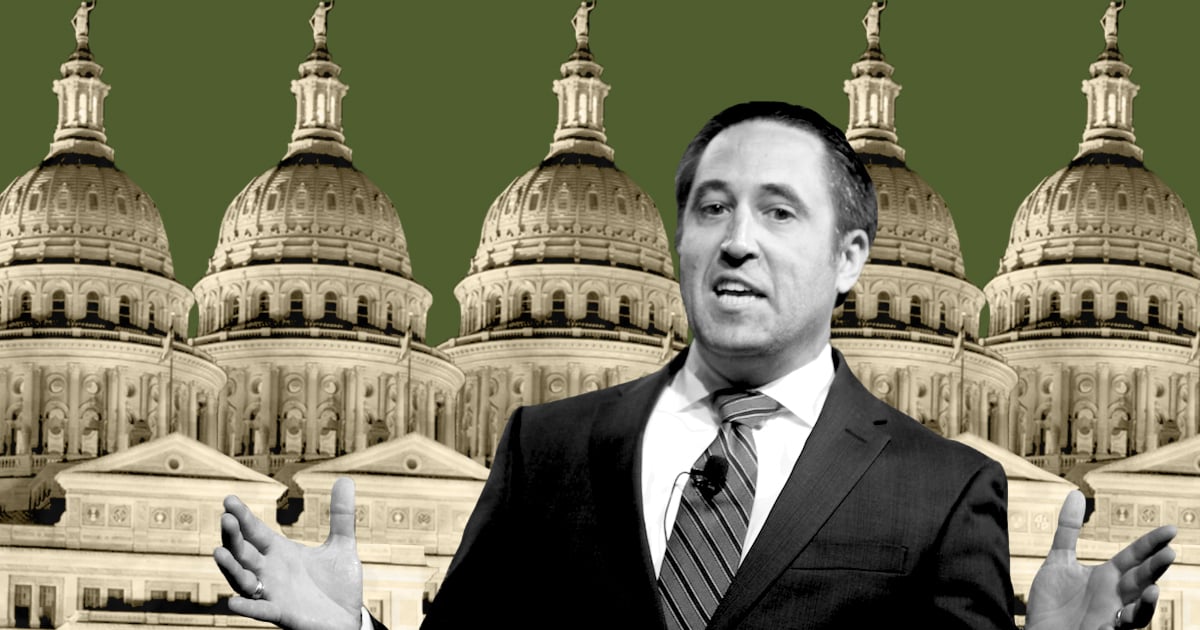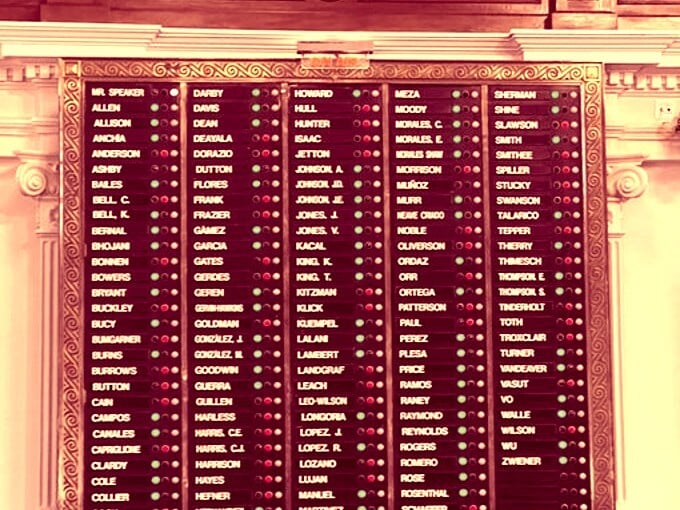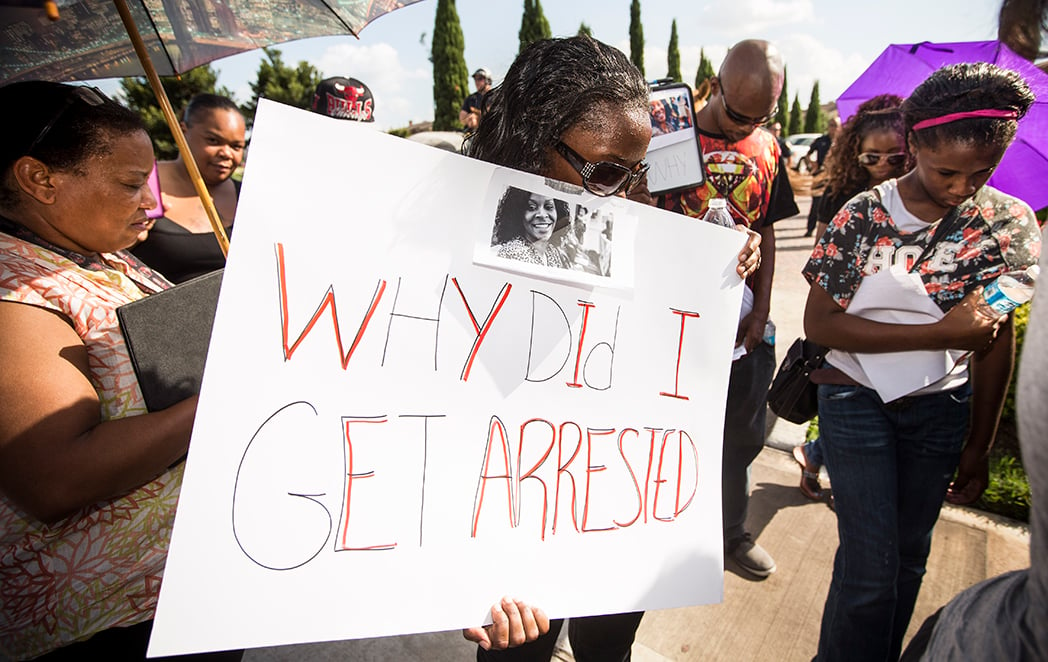
With a Bizarre Assist by Democrats, Police Groups Kill Bill to Limit Arrests for Fine-Only Offenses
A combination of incompetence and sabotage appears to have killed a police reform bill that had passed the House with an overwhelming bipartisan majority.

Law enforcement’s ability to arrest Texans for crimes punishable only by fine, including traffic violations, will likely remain unchecked after House Democrats last week flubbed a bill inspired by the arrest and death of Sandra Bland that had already passed the chamber with bipartisan support.

House Bill 2754, by state Representative James White, R-Hillister, would have greatly limited law enforcement’s ability to make arrests for Class C misdemeanors, the lowest-level criminal offense in Texas. Though convictions for Class C misdemeanors carry no jail time and their maximum statutory punishment is a $500 fine, U.S. Supreme Court precedent holds that law enforcement can arrest offenders for such minor crimes with little to no scrutiny of the circumstances.
The proposed state ban on arrests for Class C misdemeanors was originally a provision in the Sandra Bland Act passed last session, but was stripped because of opposition by law enforcement. In 2015, a state trooper pulled over Bland, a black woman, in Waller County for changing lanes without a turn signal. The traffic stop escalated when the officer threatened to arrest Bland for the alleged violation, and an altercation ensued. Three days after being arrested on a charge of assault of an officer, Bland died at the jail in what was ruled a suicide.
Arrests for traffic violations and other petty charges occur frequently. Tens of thousands of Texans are jailed each year on Class C misdemeanor charges, when they are still presumed innocent, and a disproportionate number of them are people of color, according to the advocacy group Texas Appleseed. That prompted White, who chairs the House Corrections Committee, to push HB 2754 this year.
“The most precious, God-given right we have is life, and then you have liberty. And when you take someone’s liberty — I don’t care what it is, capital murder or a Class C — when you take someone’s liberty, that is extremely, extremely serious,” White said.
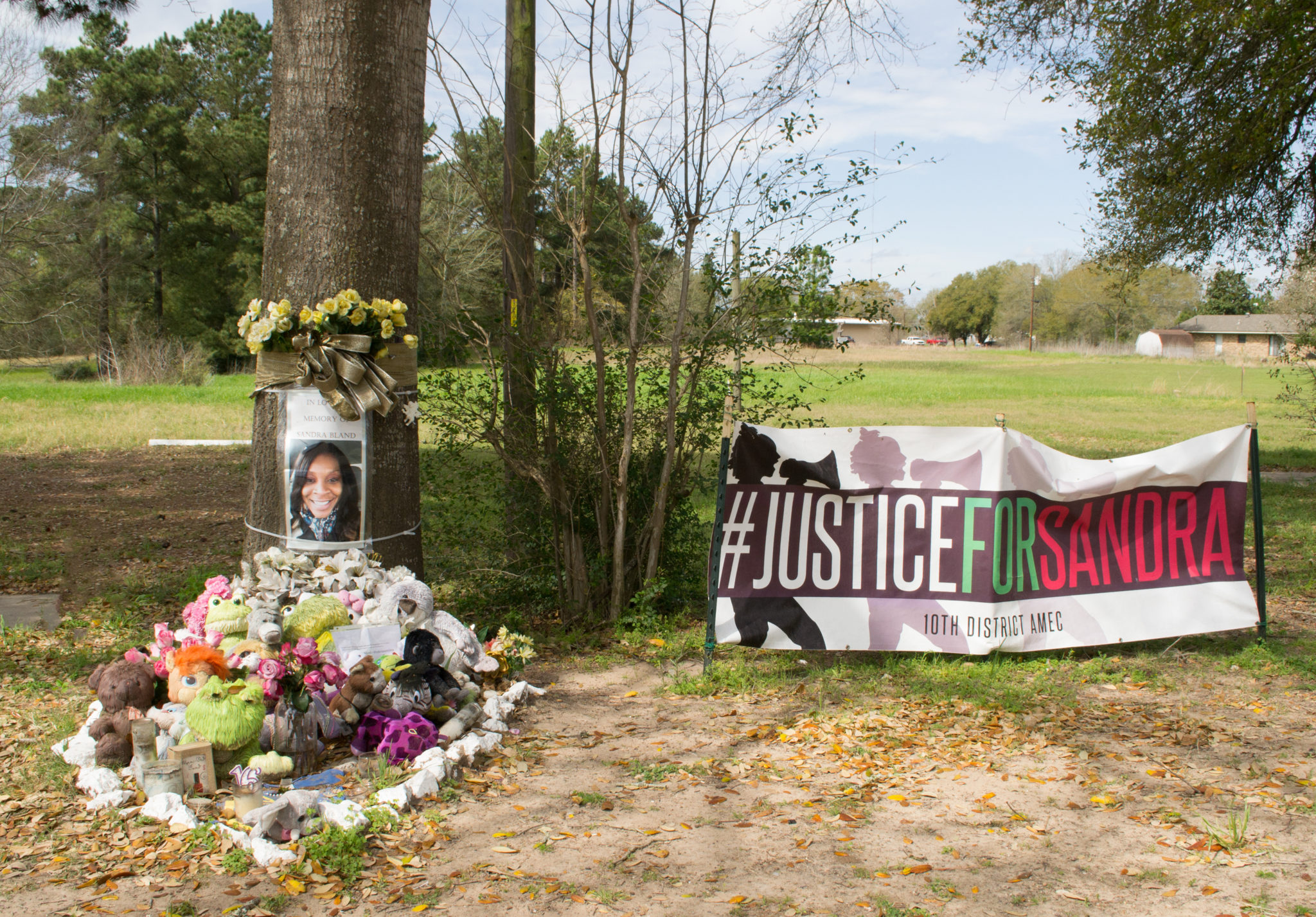
Supporters of the bill, including right-on-crime conservatives and reform-oriented liberals, agree that prohibition of such arrests would avoid subjecting people to consequences disproportionate to the offense. Those include lost employment and difficulty securing loans or housing that stem from a criminal record, jail time and additional costs associated with arrests. Advocates also said the measure would save the state hundreds of dollars per arrestee in jail costs.
The main opposition to the legislation, as in 2017, came from police officers and groups that represent them, who say the proposal limits the discretion officers need to secure public safety. White attempted to address those concerns by allowing arrests for assault, public intoxication and alcohol-related crimes involving minors in the original bill. White amended the bill in committee to require law enforcement agencies to adopt a written policy for issuing misdemeanor citations, which would include a procedure for verifying a person’s identity. He also made a change to allow arrests if an officer has probable cause to believe that an offender presents a “clear and present danger,” would continue to breach the public peace or would not appear in court in accordance with the citation.
Once the bill came up for final approval on the House floor on Wednesday — during a high-pressure, fast-moving day in which bills that didn’t pass were likely to die — White proposed an amendment that was adopted by a supermajority of the House, but ultimately served as a poison pill for the entire bill. The amendment, which stipulated that officers could arrest alleged offenders if they failed to provide “appropriate identification,” was pushed by the state’s biggest police union. The amended version of the bill passed the House on a 126-20 vote with only one Democrat, Shawn Thierry, speaking against it.

But hours later, Democrats urged White to make a rare motion to bring the bill back for consideration in order to withdraw the “appropriate identification” amendment, which many of them had just voted for. The legislative maneuver forced another vote on the bill.
Once the entire bill was up for reconsideration, a handful of House Democrats — Poncho Nevárez, Terry Canales, Thierry, Harold Dutton and Roland Gutierrez — took to the mics to voice their opposition to the ID amendment and other elements of the legislation.
Nevárez, a Democrat from Eagle Pass who was marked absent during the original vote on the ID amendment, was the first to take the podium. He objected to the section of the bill allowing officers to arrest offenders if they have probable cause to believe the person wouldn’t appear in court, which Nevárez said would allow law enforcement to make arrests if they simply don’t “like the cut of your jib.”
To complicate matters further, before the bill was initially considered on Wednesday, Nevárez brought an amendment to White containing the “appropriate identification” language — a clause he later said in an interview with the Observer that he opposed. Some criminal justice reform advocates have blamed Nevárez for pushing the amendment at the behest of law enforcement groups with the intent to tank the bill. One accused Nevárez of bottling up a bill similar to White’s in his committee this session.

Nevárez told the Observer that the Combined Law Enforcement Associations of Texas brought the amendment to his office, and that his staff filed it before he read it. He said that once he read it, he decided to get rid of it. It was very similar to the amendment White filed, passed and ultimately withdrew, and which led to the bill’s demise.
As debate played out Wednesday night during reconsideration of the amended bill, Thierry raised concerns about the provision requiring departments to create a policy regarding “appropriate identification.” She said that section, coupled with one allowing arrests if officers believe an offender would fail to appear in court, would give officers too much leeway to make arrests on specious grounds, and that the bill would not have prevented Sandra Bland’s arrest.
“There is no circumstance under which this bill would not have significantly reduced arrests for Class C misdemeanors.”
But criminal justice advocates say the bill would indeed have prevented Bland’s arrest, because the altercation would not have escalated if not for the officer’s threat to arrest her on a traffic violation — a threat that would be prohibited under the bill. Advocates across the political spectrum said they were willing to support the bill despite its ambiguous language because it was the best shot at reform in a police-friendly Legislature, even if it wasn’t perfect. In response to Democrats’ concerns, experts pointed out that under current law, officers can arrest citizens suspected of Class C misdemeanors regardless of such ambiguities.
“Today, officers have the maximum amount of discretion imaginable,” said Kathy Mitchell, policy coordinator for Just Liberty, a criminal justice reform group. “There is no circumstance under which this bill would not have significantly reduced arrests for Class C misdemeanors.”
After Democrats raised hell about the bill, the legislation died on a 55-88 vote, just hours after it had initially passed the House.
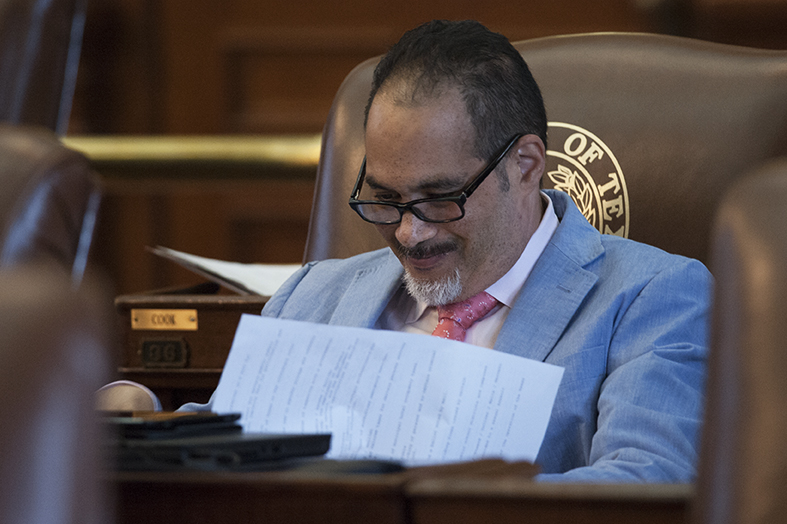
An attempt by White to revive the bill two days later, facing another major deadline, also failed. Around 6 p.m. Friday, state Representative Garnet Coleman, a Houston Democrat who had voted against the bill upon reconsideration, made an extremely rare motion to reconsider the bill a second time. Coleman even offered an amendment, filed by El Paso Democrat Joe Moody, that defined narrow parameters by which officers could determine whether an offender is unlikely to appear in court: if the offender refused to accept their citation.
Despite that effort to calm the nerves of jumpy Democrats, the motion to reconsider failed. To add to the drama, the motion at first appeared to be successful, with a vote of 91-43. But a verification of the vote — another rarity — showed that several members whose votes were recorded were not in fact present (ghost votes). Ultimately, the verified vote was recorded as 70-37 — two votes short of the two-thirds margin needed to pass. Most of the 21 missing members whose “aye” votes were canceled because they weren’t present were Democrats, many of whom had voted for the bill just days before. It isn’t clear how many of them had gone home for the weekend or were intentionally absent to avoid voting on a bill that police didn’t like.
“Honestly, why bother seeking election to the Legislature if you’re not going to show up on big votes to do your job?” wrote Scott Henson, a Lege watcher who writes for the criminal justice reform blog Grits for Breakfast. “At the end of the day, the ‘poison pill’ strategy was promoted by the police unions. They’re the behind-the-scenes force ultimately responsible for the loss.”
The bill’s unexpected failure came during the same week that a cell phone video taken by Bland during her fateful traffic stop surfaced in the media. The video, which shows the trooper threatening to use his Taser on Bland, renewed discussions about police brutality and prompted Bland’s family to demand that her case be reopened. In 2017, family members called the weakened Sandra Bland Act a disappointment and a “missed opportunity” that didn’t address the cause of her arrest.
The bill was personal as well for White, who grew emotional Tuesday morning as he told the Observer about his grandfather, Carter Boyd. Around 1950, Boyd, a World War II veteran, was shot to death by a special deputy constable in Houston after the officer rear-ended Boyd’s vehicle, White said.
“I don’t know if it’s going to get done this session, but it’s going to get done,” White said. “I can definitely empathize [with Bland’s family]. So some of these people on the House floor … can keep bumping their gums. For every situation they can come up with why this [bill] shouldn’t happen, I can come up with multiple reasons why it should.”
